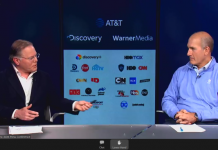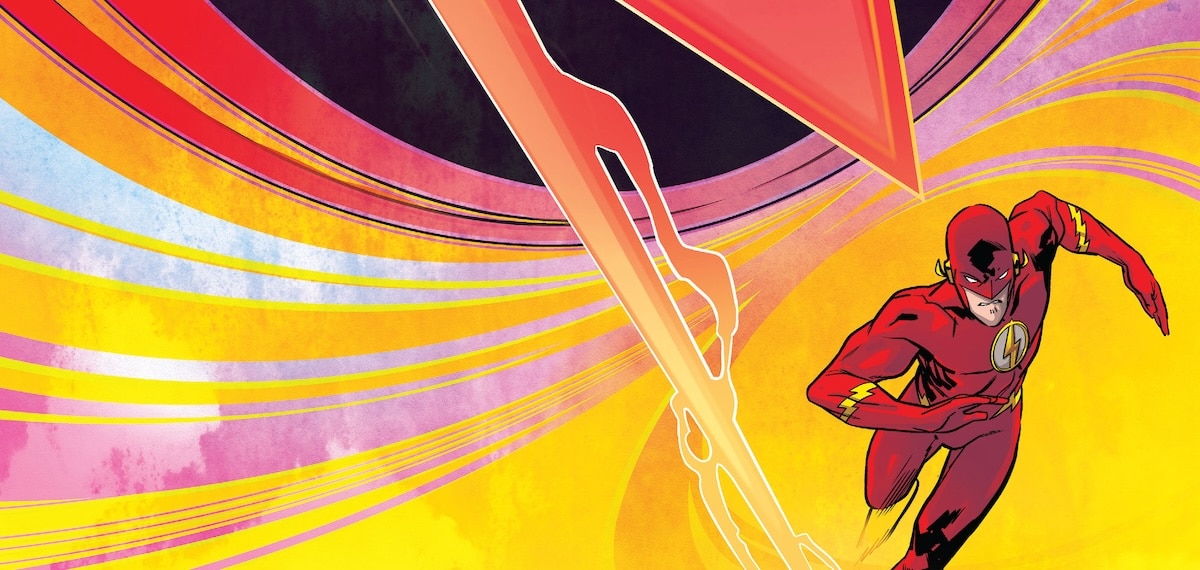Time to get meta again! The article The Awl by Noah Davis about rising pay rates for online writing gave hope to millions:
Many newer outlets offer fifty cents per word or more—sites like The Verge might pay a dollar per word—as do established publications, including New York‘s blog network and The Guardian. “You can expect that two hundred and fifty dollars is an ultimate baseline for anything that you do,” Kyle Chayka, a New York-based freelancer, told me. “No one is paying less than that. My own perception is that fifty cents per word is a fair going rate for an experienced freelance writer who’s writing something primarily for the web that’s been reported.” But still: Figure twelve hundred or fifteen hundred words per piece, and you’re talking closer to twenty cents per word. “That’s depressing math when you’re doing your budget,” Erik Malinowski, a freelancer writer, said.
I’m sure most of you who consider yourselves writer who just read that experienced a major league eye roll…but it is true that some well funded sites pay three figures for shareable, viral content. Of course, that doesn’t mean EVERYONE does, as Davis continues:
And then there is a whole class of indie sites, outlets like this one, The Toast, and other media-world darlings that are struggling in a different way. A site needs a least twenty million unique visitors a month before most major advertising agencies will consider adding it as part of its media buy. It’s possible to make some money through agreements with smaller agencies and native advertising partnerships; direct deals with mid-market and local companies; and revenue-sharing deals via companies like Vice and Federated Media, but that cash flow is unpredictable by nature. While it can constitute a significant portion of a small- to medium-sized site’s revenue over the course of a year or two, the month-to-month reality relies largely on a patchwork ad networks for consistency. Those networks continue to see falling CPM rates. The indie outfits, many of which have helped launch the careers of young writers, won’t be able to raise their rates if they want to survive.
This stands in stark contrast to a piece that ran a few days ago on the Atlantic by Olga Khazan called Can Mommy Bloggers Still Make a Living? that showed CPMs circling the drain at an alarming rate. One mommy blogger who once made enough to support three people and pay for an assistant has now all but moved on:
Like most other revenue-generating websites, Dooce for years made money on banner ads—those boxes that hawk products and sit alongside the posts that are supposed to be a site’s main event. In the good old days, these ads were very successful. The first banner ad, for AT&T, ran on a site called HotWired in 1994. Of the people who saw it, 78 percent clicked on it, said Susan Bidel, a senior analyst at Forrester research. [snip]
In recent years, banner ads have been usurped by the “native ad,” sometimes called sponsored content. These often look like regular articles but are paid for by companies. Sometimes the sponsor’s logo is the only sign of their investment. Other times the entire post hints at the sponsor’s product—like this quiz about bathroom graffiti by Scrubbing Bubbles. These ads attract more attention than banners, so advertisers pay more for them. BI Intelligence, Business Insider’s research service, suggests that spending on native ads will reach $7.9 billion this year, up from $4.7 billion in 2013.
And we’re talking Mommy blogging here—a corporation beloved, billion dollar industry covering, toy grabbing niche. IF that is going down the tubes, what hope is there for comics writing, where there was never a money spout.
I won’t belabor the many points I’ve gone over here over and over again. Writing about comics doesn’t pay. We know that, and this year’s shuffle of comics site editors provides collateral evidence.
However Kiel Phegley, who still writes for CBR but has a teaching gig these days, laid it all out on the line a bit more in a series of tweets that Bryce Harper would surely have found brutal:
Yet more evidence that writing about comics is a fool's errand. http://t.co/Q2KNUaBLuT
— Kiel Phegley (@KielPhegley) September 9, 2015
It's impossible to overstate how busted the economy of writing about comics is. Outlet by outlet, we're amateur hour all the way.
— Kiel Phegley (@KielPhegley) September 9, 2015
People bitch on Twitter all day: "How come there are no sites that do REAL journalism in comics and write long, meaty investigative pieces?"
— Kiel Phegley (@KielPhegley) September 9, 2015
I'll tell you why: writing about comics will never buy you a house. It will never give you health insurance. Never earn you a retirement.
— Kiel Phegley (@KielPhegley) September 9, 2015
The absolute shit basement pay of what we do is directly tied to the fannish nature of 99% of comic sites. Co-dependency.
— Kiel Phegley (@KielPhegley) September 9, 2015
While the online writing world matures and beefs up its economic bonafides, comics writing remains strangled by fanzine culture.
— Kiel Phegley (@KielPhegley) September 9, 2015
"You're doing it for the passion" is not a positive thing. It's a tool used to exploit talent throughout the entire comics industry.
— Kiel Phegley (@KielPhegley) September 9, 2015
I love most of the people I've written for, but I had an escape plan 1000% of my time working in comics. You'd be a fool not to. #endrant
— Kiel Phegley (@KielPhegley) September 9, 2015
I love most of the people I've written for, but I had an escape plan 1000% of my time working in comics. You'd be a fool not to. #endrant
— Kiel Phegley (@KielPhegley) September 9, 2015
Brutal.
Just to reinforce all this, a couple more items crossed my desk. Tom Spurgeon updated his Patreon news (And the first, learning curve PDF issue of Comics Report is out, so sign up.) As journalism Patreon’s go, I’d say Spurgeon’s is a success…but just how much of a success may not have been immediately apparent:
The patreon saved my life. It re-energized me after almost 11 years of working on the site, which if you’ve ever done a job like that involves a specific kind of creeping burnout that no other job really provides. It’s never a hard job or even a difficult one — it’s a walk in the park compared to what most people do — but it is specifically tough in that one way. The money from readers stablized things here at the office at a scary time, and the site reflected that: we had more substantial posts up on the CR site in August than during any month going two years back.
For those who don’t want to click through the link, the Comic Report Patreon is up to about $1400…so we’re not talking Maybach money here.
Another admirable site, Women Write About Comics, has also launched a crowdfunding effort, but this time via Indiegogo. And it’s half funded in one day! Brava! Once again, the amount of money being asked for — $3000 — is pretty modest. And it’s just the first step in a plan for world domination:
Here we are, at step one. What we’re asking for today is funding that will help us increase our reach and build a loyal audience.
We believe in our content. Not only do we want to bring it to more people, but we need to! We need to get the word out about Women Write About Comics. Unless we build a bigger audience, our revenue stream won’t enable us to begin paying our writers or publishing in print.
Our first step with accrued funds is going to involve outreach: postcards, posters, online advertisement, and maybe even WWAC tables and sponsored panels at conventions.
These are modest goals. But beyond the reach of some. I’d love to make postcards for The Beat but the money I keep setting aside for it gets used for things like food and the electric bill. That’s okay, that’s how things work.
I know I’ve said this before — just a few days ago in fact — but without my own Patreon campaign I couldn’t even keep this site running. For some insane reason, I live in NYC, where working two jobs 14 hours a day to pay for a room in an apartment with three other people living in it is pretty common. A 260-sq. foot apartment built from Legos in the middle of a park full of homeless people across the street from a mental hospital rents for $2000 a month here. (This is a block from Stately Beat Manor, BTW.)
Anyhow, TCR and WWAC making their modest, affordable crowdfunding goals is heartening. But as Kiel Phegley alluded to above, it isn’t the kind of mad money that allows you to actually do any writing or reporting. And for that, we’ll need to go to part two of this story….
TO BE CONTINUED…







I took a huge paycut moving from the art side of comics to the writing side and my accountant still looks at me like I am nuts…knowingly I make half of what I made 10 years ago. The smart thing I did was to move out of a big city and cut my cost of living in less than half…Yes, Half. And I own a house. What I learned about this job is it can be done from anywhere. If I need to be in any city for an event, I fly there.
I always warn people that comics is a business where your love of them has to be huge…and realize that making them pays pretty bad. A career over time has its highs and lows, and no one is there to help out for the lows, so you have to think hard and plan for those dry spells. There is no artist or writer in this business only doing one thing. That is a reality.
what’s the name of your blog Jimmy?
oh yeah:’ listen to Jimmy!!’
I just finished reading Jenn (JennXPenn) McAllister’s book about her becoming a YouTube star, starting with her making weekly videos as a teen in high school.
That might be where the money lies…
Not just in unboxing videos, but in actual content.
Of course, you monetize the heck out of it… ads, sponsored videos, associate programs, public appearances, book deals…
Writer ?
… You mean letters n’such?
Torsten:
The idea that more than, like, ten people total can be “YouTube stars” in the context of comics seems beyond preposterous to me? YMMV?
Seriously: the most valuable commodity is not silver or gold or dollars, it is time and attention span; hours in the day.
The thing that struck me about Noah Davis’ piece linked above was that he seemed like a sincere, serious journalist but his premise was a full quarter of his time was put into bullshit corporate hand jobs that paid the bills, while doing his personal brand no harm. I mean, dig it, make the hay while the sun shines, but, ugh, a quarter of the reporters life is essentially selling out to corporate interests? Ugh again. That seems like something that we as people should be fighting against. I have no money at all, but I’m happy to support Heidi and Tom’s Patreons to hopefully make comics journalism better.
-B
Freelance journalism pay dropped like a rock when the economy tanked. Try being a theater critic or arts entertainment writer for local mainstream newspapers or online publications. One Detroit-area daily reportedly stopped paying their critics altogether; free tickets and a byline were all they offered. (Their rate before the crash was $100 per review). Apparently, we’re all on the same sinking boat – just at different ends…
“Freelance journalism pay dropped like a rock when the economy tanked. Try being a theater critic or arts entertainment writer for local mainstream newspapers or online publications.”
You said it, Donald. The Internet’s best movie site, the Dissolve, folded in July.
In a piece eulogizing the Dissolve, film critic Matt Zoller Seitz wrote that he makes the same amount of money, with two journalism jobs and a host of freelance gigs, that he made in 1995 with one staff job at a daily newspaper.
Let’s face it: websites get more hits for casting rumors about superhero and Star Wars movies than they do for real journalism and criticism. And getting hits is what matters to the powers that be.
Comments are closed.